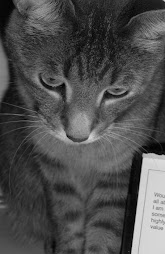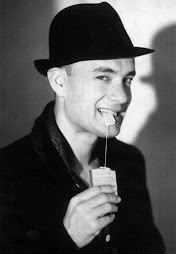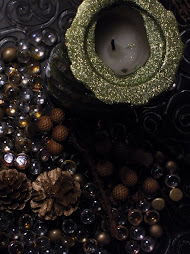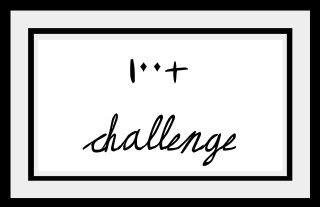
Ballads of Suburbia
Stephanie Kuehnert

rating: 7 out of 10 "books"
"It's like a big anomaly, but everybody in suburbia has a fucked up secret, an event or series of events that made you who you are. That's what you're confessing to here." Hence, ballad. "A true ballad tells a story about real life." "A lot of ballads are about the mistakes we inevitably make while trying to figure out how to live our lives." -- Ballads of Suburbia
Ballads of Suburbia is one of those stories that starts with the epilogue and then spends most of the book in a flashback. After being left for dead while OD'ing in the park near her house the summer after her junior year of High School, our narrator, Kara, is just now returning to Chicago after a four year abscence. Kara, however, was not always a royal screwup just a typical angst-ridden teen searching like any of us, for her place in the world. The back story of Ballads of Suburbia begins with not only the start of Kara's High School days and the loss of her best friend Stacey, (who has moved to another part of town), but the constant downpour of family issues that threaten to destroy the last familiar part of her life. It isn't until Kara meets the goths and punk rockers that hang around Scoville Park that she begins to feel as if she finally has a close group of friends. And while, for the first time in years, Kara and her younger brother, Liam, are hanging out and making the same friends, partying every weekend with the Scoville crowd, and experimenting with the abundance of drugs, everything around them quickly begins to spiral out of control.
The title of this story, Ballads of Suburbia, is part of the basis behind the layout of the story. As Kara descirbes, the dictionary definition of a ballad is "a song that tells a story in short stanzas and simple words, with repetition, refrain, etc," or as Kara puts it, "the punk rocker or the country crooner telling the story of his life in three minutes, reminding us of the numerous ways to screw up." Large chunks of the story are even divided into the parts of a ballad starting with the Verse, followed by chorus, and so on, including the must-have element of a ballad: the guitar solo. But even more central to the title of this story is the notebook that Kara finds out about one day that contains each of the authors included's messed up childhood stories ("firsthand accounts of the things that changed you and the mistakes you made.") and immediately labels "ballads." It's these ballads that really centralize the plot of the story and unites the various characters in the book. One cannot read the notebook until they have written their own ballad, a confession of one's own mess ups and secrets.
On the one hand, I feel as if I've lived a completely sheltered life, having lived in Suburbia myself throughout my childhood and never having anything like this happen to me. Sure, I'd hear of people at my High School having parties, doing drugs, and getting pregnant, but most of the time my friends and I saw this all as very scandalous and stayed away from it. But on the other hand, I can see how easy it is to fall into those sorts of traps, especially in High School where fitting in is probably one of the biggest deals ever. I can honestly see how Suburbia would be the perfect place for all these bad, lurking elements to collide and I have no doubts that some of the newspaper articles that the kids in this story collected about bad things happening in the Suburbs could be, or are, true. I suppose I could say that I have had some suburban drama happen in my life, and I do wonder if some of the problems I've faced in my post-High School life have been as a result of growing up in "sheltered" Suburbia.
I really liked the idea of the notebook and the fact that the characters felt safe airing their dirty laundry to their fellow peers. What was essentially personal journal entries for these kids became group knowledge. It reminds me of that new MTV show "If You Really Knew Me." I think it's really made these teens feel a whole lot closer during a time when parents, as hard as they might try, really don't understand what their teenagers are going through. I think a lot of parents argue that they know perfectly well what's going on in their child's life because "we were once teenagers too," but "the times, they are a changing." I don't know when the next generation of teens are going to have it easier than the previous, but for now it seems like it always gets tougher and tougher to be that magical age.
I liked this story. It might not be a literary masterpiece, but I think it speaks out to people, not just teenagers, of the trials and tribulations, up and downs that people go through, possibly have to go through, before they can become the people they are meant to be.





















